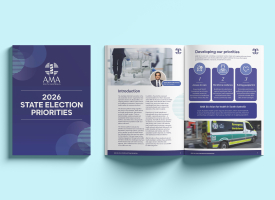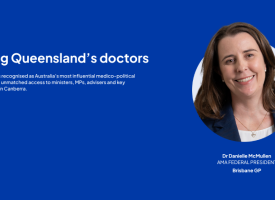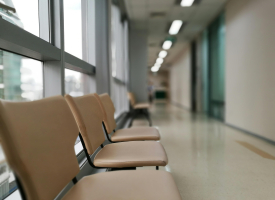Change the culture and reduce the burden, or risk losing doctors in training
A survey of doctors in training shows governments and healthcare leaders must do more to solve issues relating to overwork, bullying, and examination feedback, or risk losing trainees from pursuing a career in healthcare.

Australian Medical Association President Professor Steve Robson said there were some alarming results from this year’s Medical Training Survey.
“While our medical training system continues to perform well in terms of the quality of supervision, as well as education and patient safety training, there are still some alarming results from this year’s survey,” Professor Robson said.
“We’re looking down the barrel of worsening healthcare workforce shortages. We need to listen to what our trainees are saying if we want to look after their wellbeing and ensure they don’t leave the profession.”
AMA Council of Doctors in Training Chair Dr Hannah Szewczyk said the results of the survey and the implications for the future of Australia’s healthcare were concerning.
"It's alarming to see that 19 per cent of doctors in training are considering a career outside of medicine. This is similar to last year's results and is extremely concerning,” Dr Szewczyk said.
“It means that doctors who have been training for years and working hard to advance their careers are choosing to leave medicine, which will further contribute to a health system already under strain.”
Professor Robson said the survey showed trainee doctors were suffering from the burden of heavy workloads, problems in workplace culture — including bullying, harassment, and discrimination — and a higher level of dissatisfaction with examination feedback.
“One of the things that really stood out for me was the increased incidence of bullying, discrimination and harassment faced by Aboriginal and Torres Strait Islander trainees, with one in two reporting that they experienced or witnessing these incidents,” Professor Robson said.
“We know for a fact there is a link between the wellbeing of healthcare staff and patient care. Our patients deserve to know they are in the hands of healthcare workers who are supported and enabled to provide the best care possible.”
Professor Robson said many of the issues in the survey were a result of the overall logjam in our hospital system.
“It’s not exactly rocket science — the ability to support medical workforce wellbeing, training and education are significantly impacted by overall health system capacity,” he said.
“Governments across the country need to better fund healthcare and show our workforce that Australia values them and wants to provide the necessary resources to ensure they can perform at their best.
“Let’s ensure we retain every trainee we can by placing value on our health system and our healthcare workforce.”



